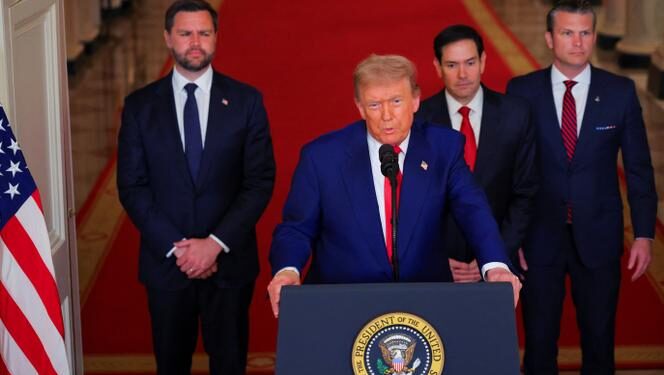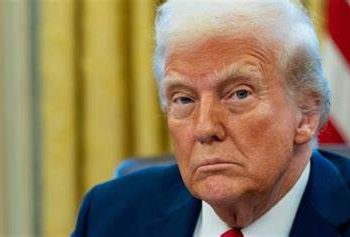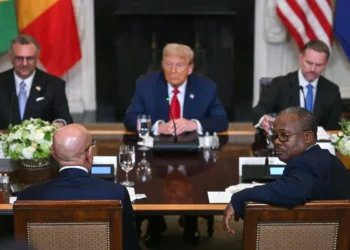President Donald Trump has conceded that constitutional provisions prevent him from seeking a third term in office, despite expressing personal interest in continuing beyond his current mandate.
Speaking to reporters aboard Air Force One while traveling from Japan to South Korea on Wednesday, Trump acknowledged the clarity of the constitutional restriction while expressing regret about the limitation.
“If you read it, it’s pretty clear,” Trump stated. “I’m not allowed to run. It’s too bad.”
The president’s admission followed public comments by House Speaker Mike Johnson, who addressed the issue during a Capitol Hill press briefing on Tuesday. Johnson flatly dismissed any possibility of Trump remaining in office beyond his second term.
“I don’t see the path for that,” the Republican leader told reporters, adding that he had discussed the constitutional constraints directly with the president and believes Trump comprehends the situation.
“He and I have talked about the constrictions of the Constitution,” Johnson explained, referring to the 22nd Amendment, which limits presidents to two terms in office.
The Speaker outlined the formidable obstacles to altering this constitutional provision, describing the amendment process as cumbersome and potentially requiring a decade to complete. Any such change would necessitate overwhelming support from state legislatures and supermajorities in both chambers of Congress.
Despite ruling out a third term, Johnson pledged sustained momentum for the administration’s agenda. “We are not going to take our foot off the gas pedal,” he said. “We’re going to deliver for the American people, and we’ve got a great run ahead of us — he’ll have four strong years.”
Trump has repeatedly floated the concept of extending his time in power, creating speculation about his intentions. Souvenirs bearing “Trump 2028” have been distributed to lawmakers and White House visitors, while Stephen Bannon, Trump’s former 2016 campaign chief who now hosts a podcast, has promoted the idea of a third Trump presidency.
As recently as Monday, while aboard Air Force One en route to Japan, Trump told reporters that he would welcome the opportunity to run again. “I would love to do it,” he acknowledged.
However, the president also highlighted potential Republican successors for the 2028 election, specifically mentioning Secretary of State Marco Rubio, who accompanied him on the Asian trip, and Vice President JD Vance, who was conducting meetings with senators at the Capitol on Tuesday.
“All I can tell you is that we have a great group of people,” Trump said, suggesting confidence in the party’s leadership bench beyond his own tenure.
The 22nd Amendment, ratified in 1951 following Franklin D. Roosevelt’s four-term presidency, explicitly states that no person shall be elected to the office of president more than twice. The provision has governed presidential succession for over seven decades without successful challenge.
Trump’s acknowledgment of this constitutional reality comes amid his second term, which he won after defeating Vice President Kamala Harris in the 2024 election. His current term will expire in January 2029, at which point he will be constitutionally prohibited from seeking re-election regardless of political circumstances or personal preference.
The exchange between Trump and reporters highlights the tension between his expressed desire to continue leading and the fundamental legal framework that defines American presidential democracy.

















